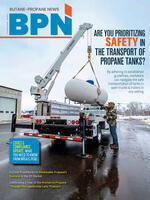
This morning on the way to work, I passed seven billboard advertisements by legal firms. The message was clear — if you get in an accident, you need to call for a lawyer so that you “can get what you are entitled to.” Another advertises, “In a Wreck, Get a Check.” One advertisement even went so far as to state the law firm had collected over a billion and a half dollars for its injured clients.
Insurance companies are painted by the law firms as the bad guys that are “keeping you from what you are entitled to.” This misinformation about insurance companies with an endless pool of money that are contriving to withhold payment from the public in the event of an accident has permeated every corner of the United States.
The attorneys don’t tell the public where the endless pool of money comes from (your insurance premiums), nor do they tell their clients that the insurance companies are under intense legal scrutiny to fairly treat the injured parties. Also, attorneys never seem to explain that for every dollar they collect in a settlement, all costs and expenses, as well as their huge hourly attorney fees, are deducted from what the injured party expects to receive, leaving them with far less than the awarded amount.
The public’s attitude about entitlement was shown in a recently settled claim that I became aware of. Brace yourself — this is beyond belief!
A propane transport was traveling on a state highway. The highway was intersected by side roads that crossed the highway. The side roads had stop signs to obey before drivers could cross.
A passenger car on the side road drove through the stop sign at a high rate of speed and T-boned the transport that was traveling on the highway. The driver of the car (who was intoxicated) was killed and the passenger in the car was severely injured. There was also significant damage done to the transport.
The passenger sued the hauling company, and the jury awarded several million dollars. This was paid by the insurance policy for the hauler. The drunk driver had no insurance, and the tractor/trailer operator was the only one with insurance.
The transport driver did nothing wrong; however, the jury made the decision to award the passenger and punish the trucking company based on the pretext that the passenger was innocent and, therefore, “entitled” to compensation. Repeatedly, we are seeing these kinds of judgments against propane companies and in turn, their insurance companies. We all must remember that a propane claim with a large settlement affects all of us.
What we really need is a cap on the amount of money that can be awarded in these types of claims. For example, in workers’ compensation insurance claims, there is a set maximum amount that can be awarded based on the type of injury and the body part injured. Each state develops a value for every part of the body and those monies are paid accordingly. This approach has worked in the United States since 1911, and there is no reason why it couldn’t work on other types of claims.
Throughout 2023, we saw several property and casualty insurance companies pull back from writing propane accounts, primarily because of the failure of some propane companies to follow basic safety rules. Not doing so will increase the likelihood of being involved in these large claim situations. The following are items that are critical for every propane marketer to observe in 2024:
- Duty to warn — Do it every year without fail. If your customer base is too large for you to handle, there are services in the industry that will handle the work for you.
- Documented gas checks — All of the insurance companies will ask what percentage of your files have proper gas check documentation. Whether you’re using a paper form or a digital software solution, these need to be filled out completely and kept on file.
- Document all bottles for RIN.
- Put cameras in all your company vehicles — Front facing at the very least and all around (front, back, and side and driver facing). These cameras repeatedly have shown their worth in defending the safe drivers and their companies.
- Be mindful of your company’s CAB report — The top of the report has three color buttons — green, yellow and red. Your insurance company is watching what color your company’s CAB report is, especially near policy renewal time. Things like not wearing your seat belt, not inspecting and correcting your creep checks, and keeping the proper up-to-date placards in place are critical, as is making sure all windshield wipers work and window glass is clear. Correct all violations in a timely manner. A red score is a reason to not renew your policy, which in this insurance marketplace could be detrimental to your ability to get coverage.
If you’re not taking the steps to protect the business you’ve worked so hard to build, no one else will!



